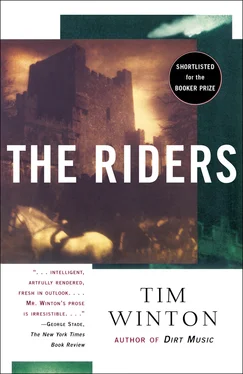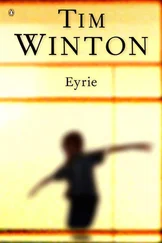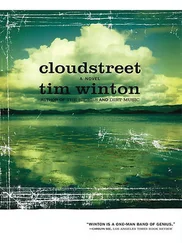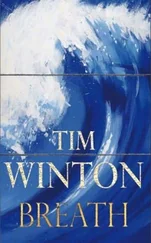‘You should get out now and then, Scully,’ Pete-the-Post said. ‘You’re killin yeself here and meetin no one, not even your neighbours.’
‘You keep bringing me my food. I can never think of an excuse to go in. You second guess me.’
‘Well, I’m takin pity on ye, Scully.’
This caused Scully to laugh uncomfortably. Did he seem that pitiable? True, he was living rough, but it was a temporary thing.
‘I’m getting there.’
‘That you are, son. You work like a nigger.’
Scully winced but let it pass.
‘I just wish you’d bill me.’
‘Are you lookin for a job?’
‘Come New Year I will be, yeah.’
‘Well, when you get your job you’ll get your bills.’
Scully didn’t go looking for Conor Keneally out of respect. After a man said things like that, how could you go embarrassing him by pursuing his brother the way Scully felt like pursuing him, morning after morning when he failed to show? Scully’s power tools lay downstairs in an ugly row and daily he went at things by hand, by candlelight, by firelight, funnelling his anxiety into work.
In two mad days Scully painted out the whole interior in lime wash, and the place suddenly seemed brighter, bigger, cleaner, and so strangely wholesome that it made him realize how foul it had been before, what scunge he’d really been dealing with day and night. Then he sealed the timber floor upstairs and buffed it by hand, and he lacquered the oak banister of the stair and the great beams that ran from lintel to lintel downstairs. From pine boards in the barn loft he made a cabinet for the kitchen sink that lacked only its ply cladding and the hinges for its doors. He shaved down spare boards for bookshelves and set them upstairs beside Billie’s bed, and so pretty were they that he began to wonder whether electricity might spoil this life after all. Peter arrived with salvage ply and a box of panel pins and he finished the kitchen. The flags were dry and swept. It was a clean, simple place, his new house, a place he was glad to wake in now, but it was still without music, without voices and laughter for most of the day.
There were moments in Scully’s day when he simply could not use a brush or plane or hammer for the thought of the summer he was about to miss at home: the colourless grass prostrate before the wind, the flat sea whitehot at its edge and the boats paralysed at their moorings with the heat and the smell of the desert descending upon them in the marinas and coves and riverbends. The great glossy weight of grapes hanging overhead and the smell of snapper grilling over charcoal. The seamless blue sky and the loose clothing on brown bodies. Lord, it gave him bad pangs, the thought of leaving all that behind, the idea of Jennifer and Billie packing that life into tea-chests and walking out of their old Fremantle house. Maybe they should have gone halfway on this, taken out a loan in case things didn’t work out. The Fremantle house was worth ten times what they’d paid for this. They needn’t have sold really. But then he thought of that dreamy, sweet look of happiness on her face that day last month, that look of resolution which made her seem unreservedly confident for the first time in years. It was worth following, it had to be worth the risk of trust.
Worse than the pangs of doubt and fear he felt alone at work, Scully had waking dreams of her here. They were so vivid he could feel her breath on him. He saw linen on his bed and the two of them glistening, gasping in the quiet, her black hair a shadow upon the sheet. Billie’s sleeping form beside the gable window with the tarry sky behind her, and a cradle in the corner still swinging faintly in the clear, clear air.
Scully showered under the spray of a hose in the door arch of the barn at night, and so cold was the water that from out in the fields and down in the woods you could hear him bellow like a man truly suffering.
• • •
CONOR KENEALLY DIDN’T COME and didn’t come, and one afternoon when Scully couldn’t bear to be at it any longer, he threw down his tools and went out walking. The sky was low. The wind blew hard from the hills. He shoved his fists deep in his pockets and stumped between hawthorn hedges and fallen walls down the lanes into the valley. He heard a tractor slinging shed slurry onto a field somewhere and dogs barking. The smell of burning peat hung in the air. He skirted the castle and its farm and went on deep into the valley where the fields were dark and heavy and became bogs at the foot of the hills. A small church stood alone on the bend in the lane. Scully climbed the stile into the graveyard and walked among the granite tombs beneath the Celtic crosses and fossilized flowers. He loved those crosses with their topography of faces and plants and stories, so much more potent than the bare symbols of his Salvation Army upbringing. There was suffering there, life lived, and beauty. He touched their lichened veins and practised crossing himself a moment before walking on sheepishly.
In a quiet wood beyond he saw pheasants and a few fleeing rabbits. His own footprints were sinister in the leaf litter and his breath spouted out before him. The valley reminded him of the dairy farm of his childhood with its standing puddles and makeshift gates and diesel murmurs somewhere on the air. The buildings were stone here and had outlived whole family lines, pre-dated nations and accents and understandings, while the sheds and houses of Scully’s childhood were all hewn from the forest around them, their flapping tin and sunsilvered wood ancient before their time. That was the life the banks had taken from his father. The suits came swooping and the farm slipped away. Scully only had the memory, the stirring now and then of that life before chest hair and girls and shopping malls. Maybe that’s why I’m here, he thought, surprised. Maybe I’m buying back the farm in a way, buying back childhood. He thought of his broken father living out an adaptation in the suburbs, his mother dazedly behind him. The quick decline. The strokes. The suits alighting once again. Buying the farm, what a good way to describe oblivion.
Looking back he saw his tiny faded white house up on the hill against the sky. Between him and it were the sodden fields rising up to the huge bald oak before the shell of the castle and its outbuildings with all their black staring windows. He imagined six hundred years of peasants looking up from their work to see the severe Norman outline of that sentry at the head of the valley. It had as many eyes as God, that shadow up there. Little wonder they burnt it.
Scully stumped across the miry fields feeling the wind bright on his cheeks.
As he approached a stone wall looking for a stile, Scully heard dogs. He stopped and cocked his head and almost went backwards into the slurry as two rangy hounds came silently across the wall and over his head.
‘Good day to ye!’ yelled a farmer with one leg over and the butt of his broken shotgun following.
‘G’day,’ said Scully with the dogs about his legs.
The farmer eased down the wall to land steady on his feet in the mud. He was dressed for hunting.
‘My name’s Scully. We’re neighbours now, I spose.’
‘Ah, you’re the Australian boy from Binchy’s Bothy, then.’
‘That’s me. Pleased to meet you.’
Scully shook his little spotted hand. He was gaunt and gingery with crazy fat sideburns and bad teeth, and Scully liked the look of him.
‘Jimmy Brereton, man of leisure. I don’t mind tellin ye the first time I saw them candles in the window up there last week I nearly shit meself. I thought, it was auld Binchy back again, the lazy booger.’
‘No, it’s just me.’
‘And the family comin, they tell me.’
‘You been talking to Pete-the-Post.’
Читать дальше












